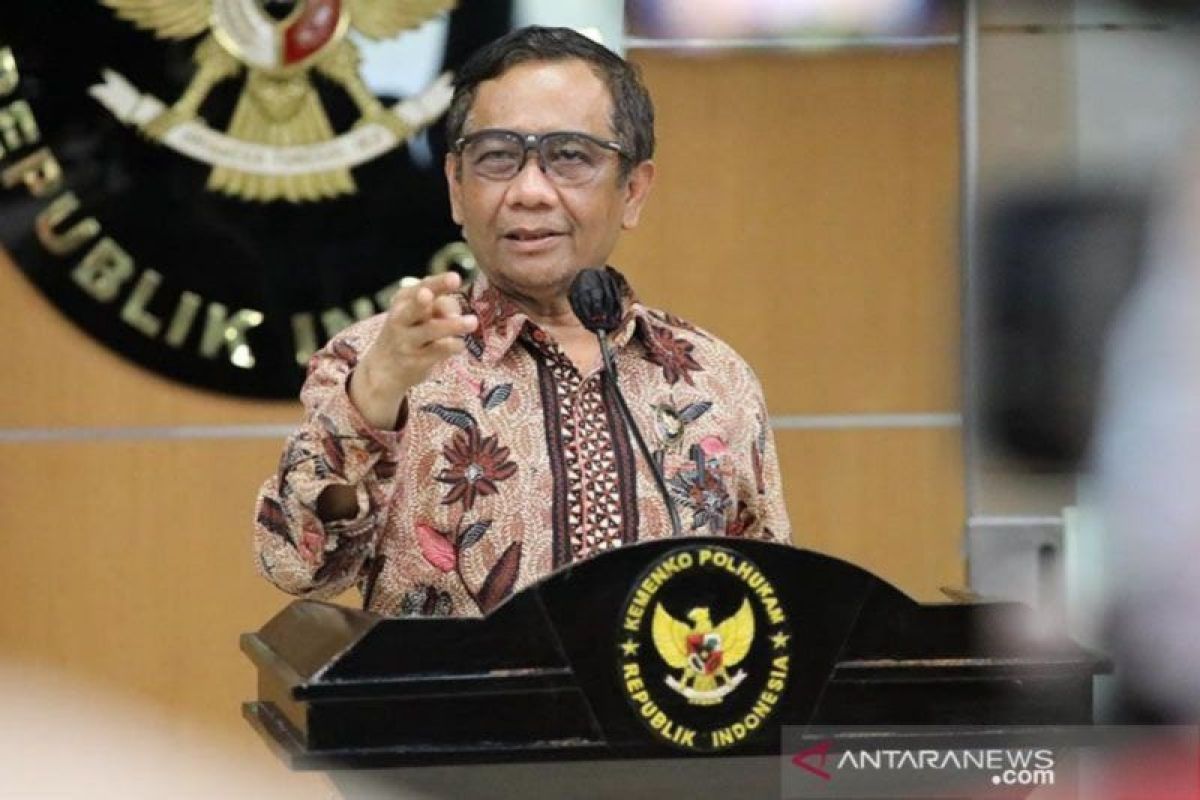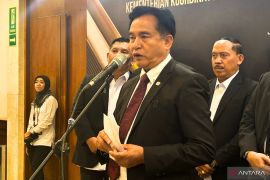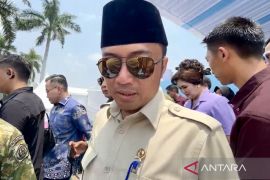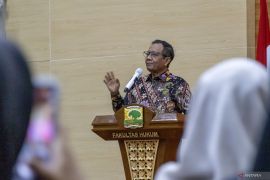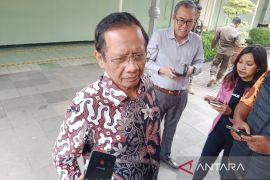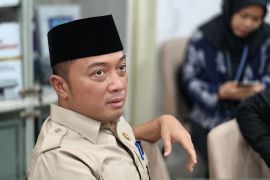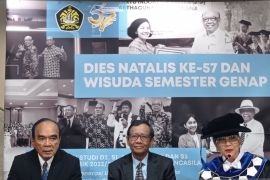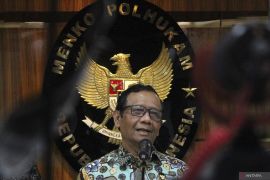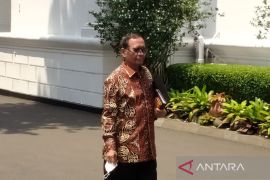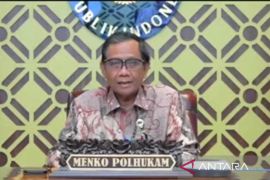So, there is no apology and no change in legal status for past events.Jakarta (ANTARA) - Coordinating Minister for Political, Legal, and Security Affairs (Menkopolhukam) Mahfud MD has said that the government will not offer an apology to the public for serious human rights violations in the past.
He made the statement during a meeting on the Recommendation from the Non-Judicial Settlement Team for Serious Human Rights Violations, which was chaired by President Joko Widodo in Jakarta on Tuesday.
"In the recommendation for a non-judicial resolution, there is no apology from the government to the public because of the incident; however, the government acknowledges that the incident did occur, and the government regrets that the incident occurred," Mahfud said after attending the internal meeting at the Presidential Palace in Jakarta.
President Widodo has issued Presidential Instruction (Inpres) Number 2 of 2023 on the implementation of non-judicial recommendations for the settlement of serious human rights violations (PPHAM).
The Inpres tasks 19 ministries and non-ministerial government agencies (K/L) with implementing the recommendation of PPHAM, which is restoring the rights of victims of serious human rights violations in a fair and wise manner and preventing such violations from happening again.
"So, there is no apology and no change in legal status for past events. For example, the MPRS TAP No. 25 of 1966 remains in effect as an unaltered decree, then regarding events that have been decided by the court also remain valid," the minister informed.
This means, according to Mahfud, that the PPHAM Monitoring Team will focus on the victims of 12 past incidents involving serious human rights violations.
"Of course, the government cannot add to these incidents because, according to the law, it is Komnas HAM that determines serious human rights violations or not; and Komnas HAM recommends 12 incidents that occurred tens of years ago," he said.
The 12 incidents include the 1965–1966 Incident, the Mysterious Shooting Incident of 1982–1985, the Talangsari Incident in Lampung in 1989, the Rumoh Geudong and Pos Sattis Incident in Aceh in 1989, the Incident of Forced Disappearance of Persons in 1997–1998, and the May 1998 riots.
They further comprise the Trisakti and Semanggi I–II Incidents in 1998–1999, the Witchcraft Witch Murders in 1998–1999, the KKA Simpang Incident in Aceh in 1999, the Wasior Incident in Papua in 2001–2002, the Wamena Incident in Papua in 2003, and the Jambo Incident Keupok in Aceh in 2003.
"I want the public to understand the difference between serious human rights violations and serious crimes. Serious human rights violations are focused on the elements, where the perpetrators involve the apparatus in a structured way. Maybe there are only two or three victims, but that could be a serious human rights violation; but if the perpetrators are civilians against civilians, then it's different. Even though there were hundreds of victims, like the Bali bombing incident, it was not a serious human rights violation but a serious crime; so that it is understandable," Mahfud explained.
The government is focusing its attention on victims, not on the perpetrators of gross human rights violations in the past.
"Because when it comes to perpetrators, it involves a judicial settlement, which Komnas HAM and the DPR (House of Representatives) must decide later, to be handed over to the government. This focus is on the victim, not on the perpetrator. We will not look for the perpetrator in a non-judicial settlement," he said.
Related news: 39 exiled human rights victims not traitors: govt
Related news: Govt to prepare training for gross human rights violation victims
Related news: Govt seeking ways to fulfil human rights violations victims' rights
Translator: Cindy Frishanti Octavia
Editor: Azis Kurmala
Copyright © ANTARA 2023
